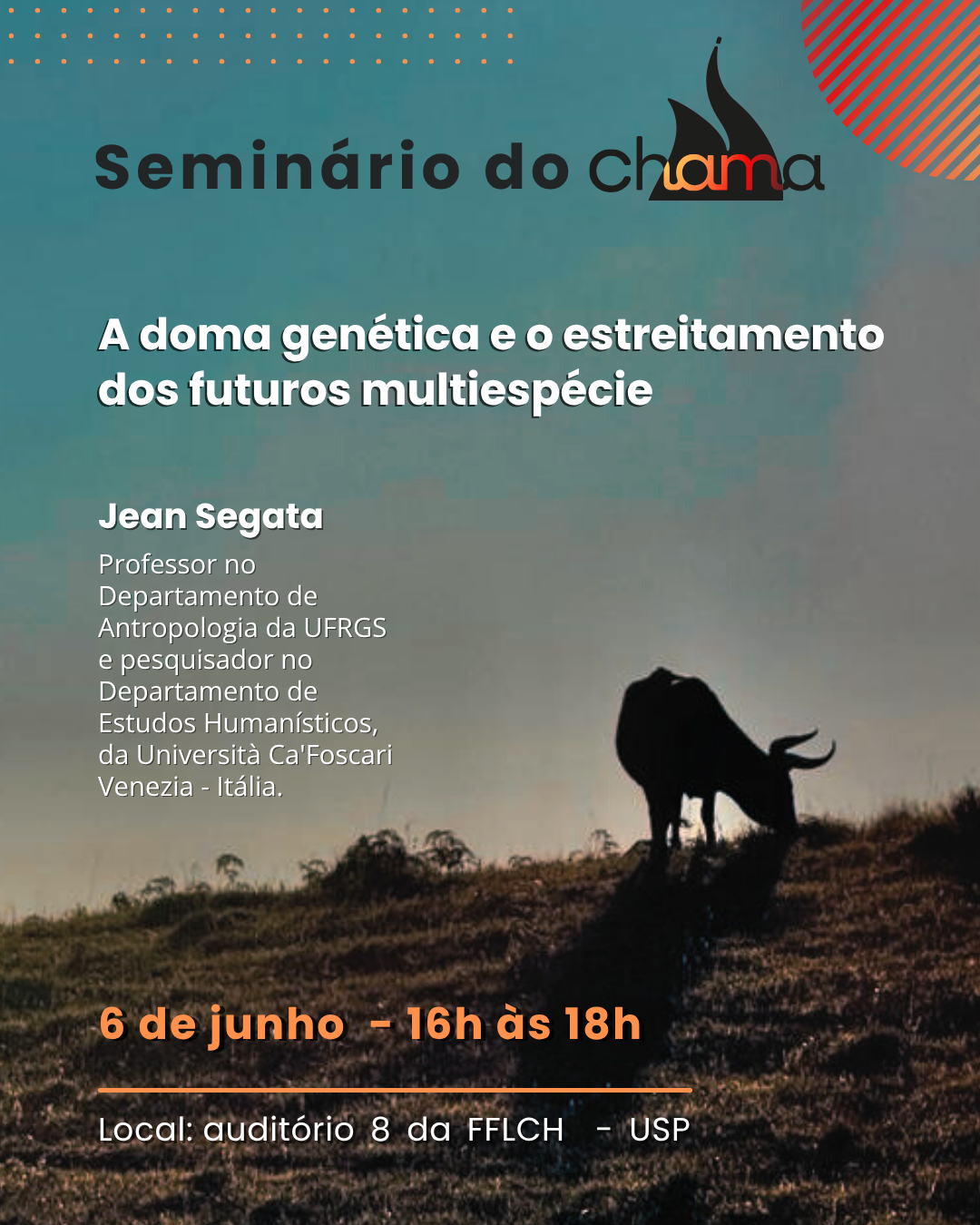On June 6 (Friday) there will be a seminar entitled "Genetic taming and the narrowing of multispecies futures", which will be taught by the professor of the Department of Anthropology at UFRGS and researcher at the Department of Humanistic Studies at Università Ca'Foscari Venezia, Dr. Jean Segata. The event will be held from 4 pm to 6 pm, in auditorium 8 of FFLCH - USP, and is promoted by the anthropology collective CHAMA.
Segata's research describes the transformations in the relationships between humans, cattle and the environment in the southern fields of Brazil, following the consolidation of British bull breeds, such as Angus, valued for the quality of their meat. The success of this breed in the tropics is the result of a prolonged process of genetic improvement, which combines advanced biotechnologies, precise zootechnical management, local knowledge and socio-environmental memory. More recently, the incorporation of genomics and mating algorithms has redesigned cattle breeding, modifying temporalities, bodies and reproductive functions. This technological arrangement, however, produces ambivalent effects: on the one hand, it strengthens genetic flows and positions Brazilian Angus as a distinct lineage in global meat markets; on the other hand, it contributes to the narrowing of multi-species futures, in which places like the Pampas and the Planalto Serrano Catarinense become not only new territories of innovation, but also stages of a silent drama, in which races considered economically inefficient disappear along with knowledge, traditions and ways of life, discontinued in the name of market-driven modernization.
The Anthropology, Environment and Biotechnodiversity Collective (CHAMA) is a research group that was created in the Postgraduate Program in Social Anthropology (PPGAS -USP) and focuses on classical studies of the anthropology of technology and the emerging anthropology of life to launch a program of teaching, research and scientific dissemination on biotechnodiversity, that is, the diversity of biotechnical actions and concepts.


